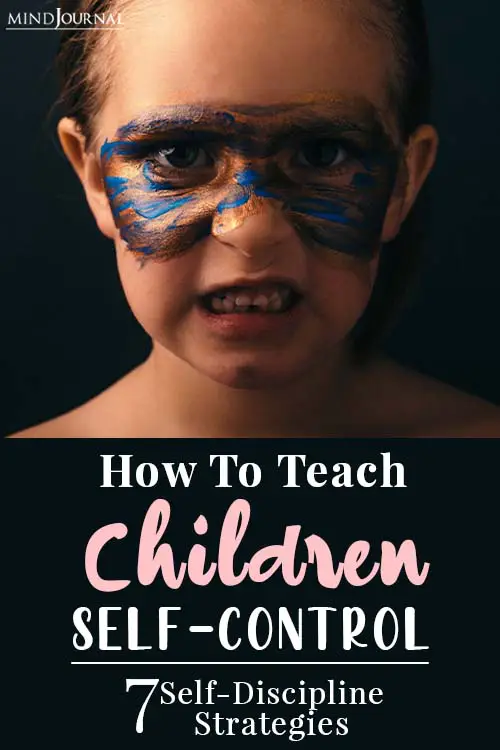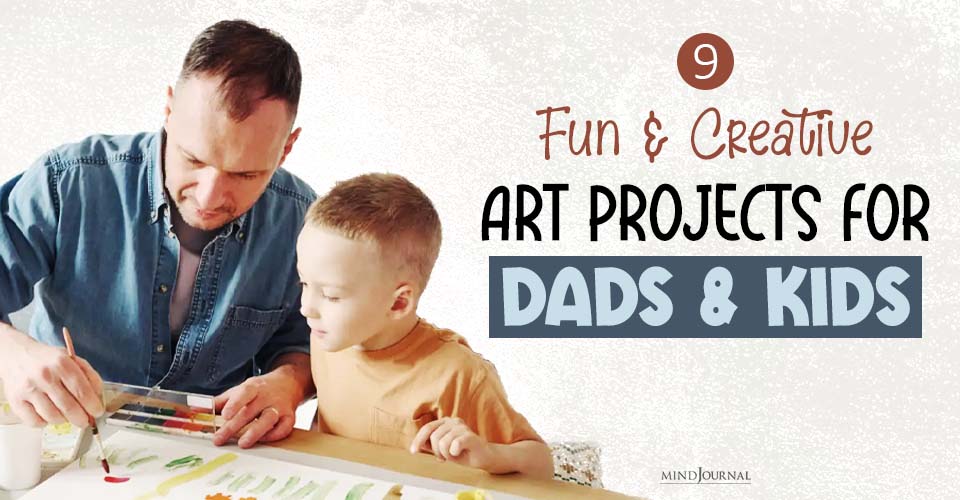Raising kids is no joke, and every parent out there will surely vouch for this. Every parent wants to raise intelligent, disciplined, and well-behaved kids, but this can be a challenging and monumental task, to be honest. However, that doesn’t mean it’s impossible though. One of the best ways of inculcating these values in your children is by teaching them the importance of self-control.
As a parent, one of the most important things you can teach your kids is self-control. Self-control is that one thing that will help them stay sorted and strong, throughout their lives. How disciplined your child is, and how much self-control they have will ultimately decide how happy, fulfilled and successful they will be in life.
Self-regulation behavior strategies will help you and them (when they grow up) to handle impulsive and immature behaviors, understanding the importance of delayed gratification, handling their emotions when they are faced with uncomfortable and tough situations, not giving in to distractions, and realizing the important values of life. Also, children who have no self-control and self-discipline tend to exhibit behavioral problems than children who do.
Related: Raising Well-Behaved Kids: Mistaken vs. Smart Discipline
Here Are 7 Self-Discipline Strategies For Teaching Children Self-Control
1. Establish rules and expectations, and make sure your kids clearly understand what they are.
It’s very important to set some rules for your children and tell them to abide by them. But make sure that you don’t come across as authoritarian or controlling; be transparent and firm about everything, but don’t make them feel suffocated. Explain to them what the rules and expectations are, the difference between right and wrong, and how all this can help them be better and stronger individuals in the future.
Continue giving them reminders, so that they know what is it exactly they need to change and inculcate in themselves, as by doing this, you are gradually setting them up for success. Also remember, the easier and uncomplicated the rules are, the easier it will be for your kids to understand what is expected from them. Moreover, uncomplicated rules breed consistency too.
2. Explain all the reasons behind why you have established the rules.
When you are raising a child, it is better to adopt a strict approach to making them learn, what you want them to learn. If you want your kid to make healthy choices, then you need to be firm enough for them to take you seriously, and that’s why it’s important that you explain to them what rules you have established and why you have established them.
For example, instead of telling them that they should finish their homework because you said so, explain to them that if they finish their homework now, they will have free time later to play, as a reward for finishing their homework. This will always help children understand the actual reasons behind the strict rules, and not feel angry or suffocated by your parenting.
Another thing you should keep in mind is that try not to lecture them constantly about every little thing, as after a point of time, they will end up getting bored and will stop listening to you. Instead, gently explain to them why some specific choices are better and more important than others; this will help them understand everything more deeply and honestly.
3. Try to follow a simple and consistent routine.
One of the best ways to teach your children self-control is by developing a predictable and consistent routine. Children do very well with consistency, and once you get them used to a predictable routine, they will find it easier to do what is expected of them; consistency and predictability help them understand what to expect throughout the day and then mold themselves accordingly.
Whenever you set clear and firm boundaries around the different activities that your kids partake in a day, they start accepting how everything works. Be it playing outside, watching television, doing their homework, or going to sleep – the moment there is a proper routine, things automatically become simpler and more disciplined.
Related: Conscious Parenting: The Art Of Raising Happy Children
4. Be a good and positive role model.
One of the most important things you should keep in mind while raising kids is that you need to be a good role model for them. Children always look to their parents for guidance, support, and wisdom, and because children are so impressionable by nature, they will always try to mirror your actions, beliefs, and mannerisms. So what you are doing, and what you are displaying, your kids are going to soak all that up like a sponge.
Make sure that you always try to be a good and positive role model for them, and when you strive to display your own self-regulatory behaviors, you are basically setting your kids up for success. Being kind and compassionate towards others, having strong values and ethics, expressing your emotions in a healthy manner, and being disciplined yourself – all of this will help you teach your kids self-regulating behaviors, which will, in turn, help them develop self-control.
5. Make sure they understand there will be consequences for their actions.
One of the most fundamental rules of raising intelligent and mature children is making sure, that they know their actions will always have consequences, be it good or bad. Sometimes children learn a lot of important things on their own on the basis of natural consequences, but sometimes as a parent, you need to make them go through some logical consequences.
A child who is always on the computer playing games, and is not bothered about schoolwork or anything else, will learn their lesson if their computer privileges are taken away from them for some time. Tell them that they are not allowed to use the computer for a week, and also cannot use the Wi-Fi, except for doing homework. This will help them make healthier choices, and also understand their actions better.
However, make sure that you don’t get into kind of power struggles and ego clashes with your kid, as this will only make things worse. Never ever force them to do something, they don’t want to do, and never use your position as a parent to make them do your bidding. Teach them the negative consequences of their actions, and then let them decide what they should or shouldn’t do.
For example, tell them that if they cleaned their room, they might have more time to play with their friends. If they don’t, display a consequence, but never shout at them, or hit them, no matter what. Children need to learn to make the right decisions on their own, and parents should always help guide them in the right direction, not impose on them their own beliefs and punishments.
6. Self-discipline doesn’t have to be boring.
Now, self-discipline might sound boring but it does not have to be; teaching self-control to your kids does not have to be redundant and repetitive all the time. Every child is different, and has different personalities and dispositions, so the same rules aren’t going to yield the same results for everyone. Try not to make it too tedious and scary for your kids, otherwise, they will end up despising your efforts, and along with it, you.
Here are a few fun and interesting ways you can inculcate self-discipline in your kids:
– Red light, green light
This has always been a very popular childhood game. Basically what you have to do is whenever you call out ‘green light’, your kids can get up, dance, move, run around and do whatever silly things they want to do. But the moment you call out ‘red light’, they will have to stop doing whatever they are doing, and sit down quietly, unless you call out ‘green light’ again. This helps them develop self-control and also trains them to follow instructions.
Related: 13 Alternative Ways To Discipline Your Child, Than With a Simple NO
– Simon Says
This is again one of the most popular games that every kid loves to play. You can make this game even more fun and encouraging, by making sure all your children get the chance of being ‘Simon’ so that nobody feels ignored or left out. You can also reward them whenever they finish an important task, such as finishing their homework on time, helping you clean the house, helping you feed the dog, etc.
– Anger Management skills
This is one of the most important things you can teach your kid. Impatience coupled with a low tolerance of frustration can prove to be a recipe for disaster for children, and they might end up engaging in regrettable and dangerous actions. Teach them the importance of having a cool, and calm head, and help them practice deep breathing techniques and meditation every day.
You can also put them in time-out or ground them if they ever cross their limits in a fit of anger. At the same time, help them inculcate the ability to put themselves in a time-out if they feel their temper rising. You can create a ‘calm toolkit’ for them, that will help them keep their cool, and not fly into a rage at the drop of a hat.
– Playing with Playdough
Playing with playdough can help engage your kids’ sensory abilities and can help tremendously in calming down their emotions, especially the distressing and negative ones. This activity can also help you bond with your kids, understand them and their feelings on a deeper level, and use the time to come up with more interesting ideas for the future. Playing with playdough is an extremely relaxing thing to do, and will always yield good results.
– You Cannot Laugh
So, how this works is you sit with your kids and you try to make each other laugh by doing or saying a lot of silly and funny things. But the catch is, no matter what you are doing, they can’t laugh. You have to try and make them laugh without touching them, and they always have to maintain eye contact with you throughout. This is an incredible way of teaching your kids self-control and making them understand the importance of not letting your emotions control you all the time.
– Meditation
This is an oldie but will always be a goodie! Meditation has never failed to calm people down, and the same goes for kids. Help them develop a habit of meditating every day for at least 10-15 minutes, as this can train them to be in touch with their emotions, focus on being their true selves, and also learn how to navigate all their feelings, be it good or bad.
Related: 12 Powerful Parenting Phrases To Discipline Your Kid
– Establishing a fun Reward System
Delayed gratification can work wonders when it comes to installing self-discipline in kids, and one of the best ways to do this is by establishing a reward system. Create a token system, and give them a token for every good thing they do, and once they have collected enough tokens, they can exchange these tokens for a bigger reward.
For example, if your kid has collected 10 tokens, they can use 6 of them to go to the park and play with their friends. And they can use the remaining 4 tokens the next day for watching television for half an hour. In this process, they will also learn how to save more tokens in order to enjoy bigger rewards. The more the number of tokens, better the rewards. Gradually, they will understand and inculcate delayed gratification.
– Don’t Take The Bait
This game can yield amazing results in kids if you are trying to teach them how to be in better control of their emotions, urges, and actions. The game of Don’t Take The Bait can help your kids come up with ideal strategies and solutions, in the face of crises and triggers that normally end up affecting their capacity of controlling their emotions, behaviors, and attitudes. They might find it challenging at first, but your help and encouragement can tremendously help them handle themselves and their emotions in a much healthier way.
7. Understand the value of positive reinforcement.
Even though negative reinforcement can sometimes help you motivate your kids and drive them to be successful in whatever they do, too much of it can end up making the situation worse. That’s why positive reinforcement is something you should always try out. Research suggests that positive reinforcement is always more effective than negative reinforcement when it comes to motivating your kids to do the right thing.
Motivating your kids, and making sure that they know you believe in them can help so much in instilling self-confidence and a sense of self-worth in them. At the end of the day, parental support means the most to every human being, more so kids. Try out these strategies, and see for yourself how well they work. Let us know about your and your kids’ experiences in the comments down below!













Leave a Reply
You must be logged in to post a comment.